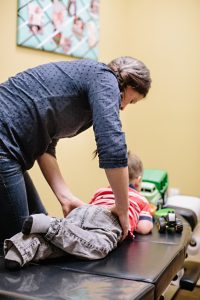How to Support (and Prevent) Constipation in Kids
Let’s talk about poop.
Everyone poops. (Or so Taro Gomi’s classic children’s story would lead us to believe, though Robert Munch suggests good families don’t pass gas.) However, it is my experience that not everybody poops with the same amount of frequency or satisfaction. Jokes aside, “Number 2” is of primary health importance, so if your little one is already showing signs of a strained relationship with the toilet, then something needs to give.
Here is where you should start your journey resolving constipation in children.
1. Hydrate.
You need to drink lots of WATER. Dehydration will slow your progress and cause stool to become too solid and condensed. Not comfortable!

2. Eat your veggies.
Your body’s favourite form of fibre is that found in vegetables. Leafy greens, squash, broccoli, spinach, and even carrots. These high-volume, low calorie, nutrient-rich foods provide your body with “roughage” which helps pass food materials further on down the line.
3. Avoid binding agents.
Certain foods “bind you up”. This will increase dehydration and slow your transit time. The heavy hitters in this category are wheat and animal protein (especially red meat). Bananas are sometimes included in this category as well (which makes them a great snack during diarrheal episodes) but having one every day or so should be fine.
4. Move your body.
Exercise helps keep your metabolism high and your guts moving, literally. By keeping your intestinal tract moving, I mean it encourages GI motility and peristalsis, which helps pass food down the tube. If you are physically sluggish, there is a good chance your bowels will be too!
5. Get adjusted.
Chiropractic care is about so much more than just relieving joint restrictions and improving proprioception/body communication (though it is VERY good at that!). The real power in a chiropractic adjustment comes from the regulating effect that it has on your Autonomic Nervous System (ANS). By encouraging the Parasympathetic Division of your ANS, you up-regulate all your “rest & digest” functions (versus your “fight & flight” Sympathetic Division which will de-emphasize digestive function for more immediate survival needs). I do often find joint restrictions in the lumbar and sacral regions and myofascial trigger points in the lumbar paraspinal muscles in children (and adults) who struggle with constipation, though that is not a direct causal relationship.
6. Boost your system.
Just like certain foods can work against you, you can put other foods to work FOR you. Foods and supplements high in vitamin C help resolve constipation and are very safe even in high doses because vitamin C is a water soluble vitamin. The great thing is that there are so many tasty foods that are high in vitamin C! Peppers, citrus fruit, leafy greens, guava, broccoli, kiwi, berries, peas, and papaya. (Make sure you increase water intake as you increase vitamin C; it can be dehydrating at higher doses, which would be counterproductive for our cause.) Probiotics (healthy gut bacteria) are also very important for regular, healthy, bowel activity. They help digest your food (along with so many other important health functions). Fermented foods like sauerkraut, kimchi, and kombucha are great whole food sources of healthy gut buddies. If you choose to use yoghurt as a probiotic source, make sure that you get one with little-to-no sugar! Sugar feeds the “bad guys”.
7. Address psycho-socio-cultural factors.
There can be a very complex interplay of psychological and social factors (literally) holding your kid back from having a bowel movement. You have probably experienced some of these effects when your regular bowel habits were upset by travel or a stressful presentation that you had to do at work. Anxiety and stress affect your ANS, so they can have a strong effect on your bowel habits as well. I see this a little more prevalent in girls who tend to have a stronger social struggle with pooping in public (or anytime anyone could possibly smell anything). Make pooping normal. Talk about it. Make jokes. Don’t let it be a big bad taboo.
Regular, healthy bowel movements are a strong indicator of overall health and vitality. There may be some range of acceptable frequency and consistency, but keep in mind that “normal” does not always mean “optimal”. You can start applying the tips above today to help your child develop a lifelong, fruitful relationship with poo… and yes, these pieces of advice are not only applicable to little bowels… hint hint.



